Over 30 years of anarchist writing from Ireland listed under hundreds of topics
Opinion
‘Protests Work’ says Minister: How the DEIS Cuts were reversed at Primary Level
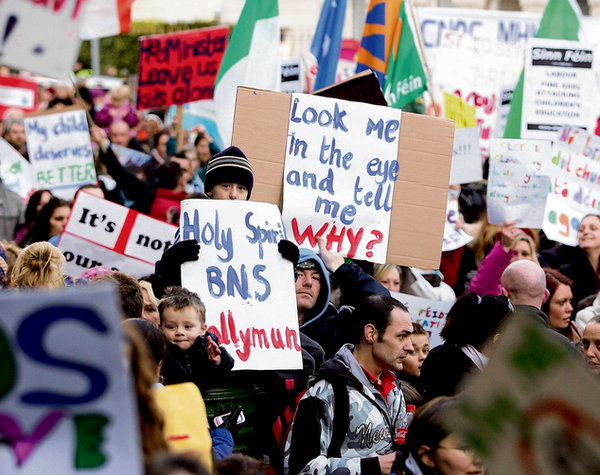 Following his announcement that many of his proposed cuts to teacher numbers in schools serving areas of social disadvantage are to be reversed, Minister for Education and Skills, Ruairi Quinn, has admitted that protests work and that he reversed his decisions because of the huge protests faced by himself and his colleagues on the government backbenches.
Following his announcement that many of his proposed cuts to teacher numbers in schools serving areas of social disadvantage are to be reversed, Minister for Education and Skills, Ruairi Quinn, has admitted that protests work and that he reversed his decisions because of the huge protests faced by himself and his colleagues on the government backbenches.
“…in relation to the area where all the pressure was coming from and all the protests was [sic] coming from …. I reflected on the impact on those schools….and I reversed that decision,” he said.
What is Direct Action and can it deliver change?

The idea of direct action is sometimes simply understood as meaning anything violent, anything from a brick through a window to a full-scale guerrilla war. Our political opponents and enemies go out of their way to spread confusion because they know that in a “battle of ideas” they would lose. Firstly the fact that we are sitting in this room now having this teach in is a result of direct action being taken, doing it for ourselves and not relying on any politicians or anyone else to sort out homelessness or the building social centres.
20 years of inaction after the x-case - Action on X launched
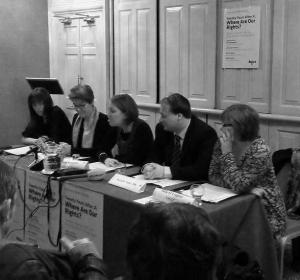 20 years ago this month details emerged of the X-case, when the Irish state injuncted a pregnant 14 year old who had been raped to prevent her traveling of England for an abortion. The x-case was the culmination of a decade of fundamentalist anti-choice hysteria that had flowed from the 1983 referendum designed to make it impossible to ever legalize abortion again in Ireland.
20 years ago this month details emerged of the X-case, when the Irish state injuncted a pregnant 14 year old who had been raped to prevent her traveling of England for an abortion. The x-case was the culmination of a decade of fundamentalist anti-choice hysteria that had flowed from the 1983 referendum designed to make it impossible to ever legalize abortion again in Ireland.
(Pic: Press launch - taken by RAG)
Household Tax: Cork keeps up the pressure
Cork continues to organise against the household tax. Fermoy, Hollyhill, Macroom, Douglas and Mallow all had successful meetings this week with groups established in each area. Mallow was the biggest meeting with 250 people crowding into the town's Hibernian Hotel. Tonight the campaign rolls on with meetings in Charleville, Gurranabraher, Carrigaline and Bishopstown.
The Austerity Treaty: Is the call for a referendum a sensible strategy?
The fiscal treaty, as agreed by EU governments, is clearly an austerity treaty and will impose serious levels of economic and financial pain on Irish workers for years to come. In his blog ‘Notes On The Front’ Unite economist Michael Taft says “The Government, in signing the Fiscal Treaty, has effectively committed itself to introducing up to €6 billion more in tax increases and spending cuts in the medium-term, over and above what it has already planned”.[1]
Dublin demonstrates against ACTA & SOPA but it is about more than just downloading
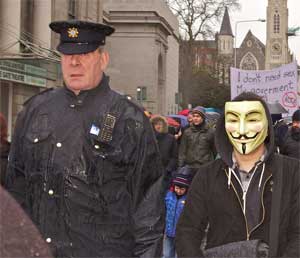 Dublin last weekend saw about 400 people take part in a demonstration against the intention of Seán Sherlock, the Labour Party Minister for Research and Innovation to bring into law a requirement for Irish internet service providers to block access to sites that allow the downloading of copy righted material. This is a similar law to the SOPA and ACTA laws that Hollywood & music industry lobbyists tried unsuccessfully to force through the US Congress. A second demonstration is to take place this Saturday.
Dublin last weekend saw about 400 people take part in a demonstration against the intention of Seán Sherlock, the Labour Party Minister for Research and Innovation to bring into law a requirement for Irish internet service providers to block access to sites that allow the downloading of copy righted material. This is a similar law to the SOPA and ACTA laws that Hollywood & music industry lobbyists tried unsuccessfully to force through the US Congress. A second demonstration is to take place this Saturday.
Remembering Sue Richardson /Sarah Fenwick Owen
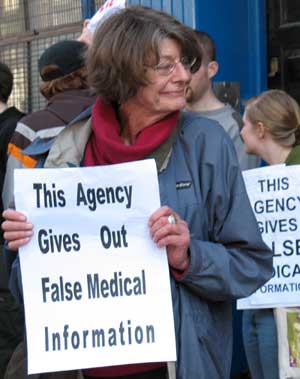 Three days after Christmas, on one of those clear winter days during which the dark clouds are pierced by a sunlight that turns the water to silver, a group of friends gathered at Bull Island in the heart of Dublin city to say goodbye to Sue Richardson. Sue died in October in 2011, aged seventy, sitting at her kitchen table, waiting for the kettle to boil. At her funeral a former housemate said, ‘Sue had an uncanny knack of turning the conversation away from herself’. She had an extraordinary life, yet spoke very little about it. The story here cannot be anything but incomplete.
Three days after Christmas, on one of those clear winter days during which the dark clouds are pierced by a sunlight that turns the water to silver, a group of friends gathered at Bull Island in the heart of Dublin city to say goodbye to Sue Richardson. Sue died in October in 2011, aged seventy, sitting at her kitchen table, waiting for the kettle to boil. At her funeral a former housemate said, ‘Sue had an uncanny knack of turning the conversation away from herself’. She had an extraordinary life, yet spoke very little about it. The story here cannot be anything but incomplete.
Image: Sue on a pro-Choice picket of
a Rogue agency in Dublin in 2007
SOPA & ACTA in the fight against actually existing communism
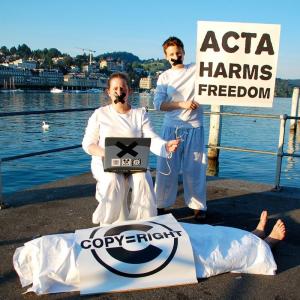 SOPA & ACTA are the latest attempts by traditional capitalism to reverse a transformation in the exchange of goods that has been escalating over the last couple of decades. In a widely discussed interview in 2005, Bill Gates called the free culture/open source movement "new modern-day sort of communists who want to get rid of the incentive for musicians and movie-makers and software makers under various guises." This outraged many in the movement who were more inclined to identify with the Ayn Randite ultra-free market right than the traditional left, but in fact he had a point. Many failed to see it because 'communism' for almost everyone has come to mean something like the old Soviet Union. But the word means a lot more than that failed top down experiment. Why was Gates right and why is this to be welcomed?
SOPA & ACTA are the latest attempts by traditional capitalism to reverse a transformation in the exchange of goods that has been escalating over the last couple of decades. In a widely discussed interview in 2005, Bill Gates called the free culture/open source movement "new modern-day sort of communists who want to get rid of the incentive for musicians and movie-makers and software makers under various guises." This outraged many in the movement who were more inclined to identify with the Ayn Randite ultra-free market right than the traditional left, but in fact he had a point. Many failed to see it because 'communism' for almost everyone has come to mean something like the old Soviet Union. But the word means a lot more than that failed top down experiment. Why was Gates right and why is this to be welcomed?
Pic: Act Up-Paris and La Quadrature's ACTAivists in Luzern, in front of the negotiation site.
NAMA v Unlock NAMA at the Great Strand Street Occupation
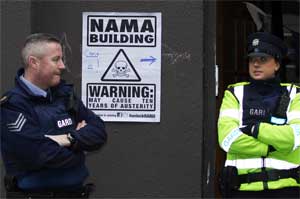 On Saturday 28th January Unlock NAMA opened an occupied building in the center of Dublin for a day of lectures about NAMA, Ireland's 'Bad Bank.' The event was cut short by a large number of police who turned up and ordered them out of the building. In this 40 minute interview Andrew Flood interviews Cat & Moira from Unlock NAMA about the occupation, what NAMA is and what Unlock NAMA demands.
On Saturday 28th January Unlock NAMA opened an occupied building in the center of Dublin for a day of lectures about NAMA, Ireland's 'Bad Bank.' The event was cut short by a large number of police who turned up and ordered them out of the building. In this 40 minute interview Andrew Flood interviews Cat & Moira from Unlock NAMA about the occupation, what NAMA is and what Unlock NAMA demands.
Image: All rights reserved by Paul C Reynolds - used with permission
Corporate Power and the Davos Class
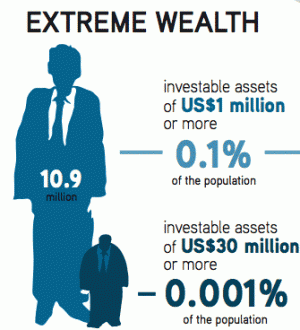 The recent World Economic Forum (WEF), the one where Enda Kenny reminded us of how ‘we’ went mad borrowing, is, in fact, an appropriate reminder of global corporate power and the costs it imposes on the global working class. In a recent libcom article, Steven Colatrella has suggested that the remarkable consistency of approach to crisis resolution adopted by governments the world over, notably their pursuit of austerity at any social cost, indicates the increasing commonality of ruling class interests, a convergence owing in part to shared experiences at institutions such as the IMF, WTO, G20 and EU. The WEF meeting at the Swiss ski resort of Davos must be understood in this context of the ongoing elaboration of global governance networks.
The recent World Economic Forum (WEF), the one where Enda Kenny reminded us of how ‘we’ went mad borrowing, is, in fact, an appropriate reminder of global corporate power and the costs it imposes on the global working class. In a recent libcom article, Steven Colatrella has suggested that the remarkable consistency of approach to crisis resolution adopted by governments the world over, notably their pursuit of austerity at any social cost, indicates the increasing commonality of ruling class interests, a convergence owing in part to shared experiences at institutions such as the IMF, WTO, G20 and EU. The WEF meeting at the Swiss ski resort of Davos must be understood in this context of the ongoing elaboration of global governance networks.

